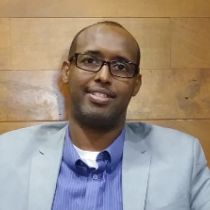This week's briefing on recent news and upcoming events in the region featuring Dara Conduit, Marvin G. Weinbaum, Mark Heller, Syed Mohammad Ali, Gonul Tol, and Guled Ahmed.
The UN Security Council must act now to save northwest Syria
Dara Conduit
Non-Resident Scholar

The welfare of the more than four million people in northwest Syria hangs in the balance this week ahead of the UN Security Council’s July 10 deadline to renew Resolution 2504, which facilitates the delivery of UN aid across the Turkish border via the Bab al-Hawa and Bab al-Salam border crossings.
Without the renewal, millions in Idlib and Aleppo provinces will become reliant on cross-line UN aid deliveries from Damascus. Such a process will not meet the needs of the estimated 2.8 million in the area who require humanitarian assistance, especially given that the situation in northwest Syria has deteriorated markedly in 2020 as a result of the brutal Syrian/Russian Idlib offensive that displaced 960,000 people, as well as the rapidly unfolding dual COVID-19 and Syrian currency crises. As UN Secretary-General António Guterres explained in May:
There is no alternative that can match the scale and scope of the current cross-border operations. Efforts have been, and will continue to be, made to deliver cross-line assistance into the north-west. … No cross-line missions, however, have yet taken place. It is currently simply impossible to replicate with cross-line assistance what is being delivered through the cross-border operation. Cross-line assistance is therefore not a viable alternative.
But the challenge of cross-line aid delivery is not just a question of logistics. The Syrian regime has a long track record of punitively withholding or redirecting humanitarian aid in contravention of its international obligations. It simply cannot be trusted to act as a reliable or responsible partner for its four million citizens languishing in northwest Syria. To suggest otherwise is foolhardy.
Resolution 2504 was already a mere shadow of its predecessors, which had also allowed aid delivery through the al-Yarubiyah crossing on the Iraq border and the al-Ramtha crossing on the Jordanian border. But threats and vetoes by China and Russia in December 2019 and January 2020 saw the removal of the Iraqi and Jordanian crossings from the final resolution, which passed at the 11th hour. More than five months on, the UN Under-Secretary-General and Emergency Relief Coordinator Mark Lowcock told the Security Council that “distributions of WHO medical items have not reached the majority of facilities that previously depended on supplies delivered cross-border.” Further questions about the suitability of cross-line aid surfaced in April when reports emerged that there had been an 11-day delay in notifying medical authorities in northeast Syria that a (by-then sadly deceased) patient had tested positive for COVID-19. The test was processed in Damascus because the facilities did not exist in the country’s northeast. Indeed, the compromises that led to Resolution 2504 had very real consequences that would likely only be amplified in the context of the pandemic.
All eyes will therefore be on the UN Security Council this week as the Resolution 2504 deadline draws near. A draft resolution from Germany and Belgium in June sought a one-year extension for the two Turkish border crossings, as well as a six-month approval for the Iraqi crossing. But the resolution has little chance of passing in the face of Russian and Chinese opposition. Both states have repeatedly argued that the cross-border aid authorizations were designed as a temporary measure at a time when aid distribution could not take place via Damascus, willfully neglecting that while Damascus may now be able to approve aid deliveries, it is not willing to oversee its humane distribution. Russia and China have also taken exception to the implementation of U.S. autonomous sanctions on Syria via the Caesar Act in June, which is proving a further distraction.
In negotiations last week, Russia purportedly proposed the re-authorization of only the Bab al-Hawa border crossing. Although the Bab al-Salam crossing facilitates a lower volume of aid delivery than Bab al-Hawa, Under-Secretary-General Lowcock underlined in June that Bab al-Salam “provides direct access to parts of northern Aleppo that host some of the highest concentrations of displaced people in the country.” Given the very real consequences of the 2504 compromise for northeast Syria, the Security Council must not entertain any outcome that also excludes Bab al-Salam. Indeed, it is important to remember that Russia is no honest broker on Syria, having been a key player in the 2019-20 Idlib offensive, and the Syrian war more broadly. In June, it withdrew from the de-confliction mechanism that exists to ensure the safe passage and distribution of humanitarian aid in Syria. Russia’s priorities are clear.
After years of failing to protect Syrian civilians, the international community has an opportunity this week to step up and show that humanitarian principles still count, and that it will not allow Syrian lives to be held hostage by Security Council members. The strategy must be two-fold. First: Security Council members and neighboring countries such as Turkey must exert all possible leverage to obtain authorization for cross-border aid to Syrians in all non-government areas, including the full renewal of Resolution 2504 and the re-opening of the al-Yarubiyah crossing. Further compromises cannot be an option. Cross-border aid has become more, not less, important during the pandemic, and all states — including Russia — should recognize that a serious outbreak of COVID-19 in Syria will not be contained within state borders, and will have severe consequences both regionally and internationally.
Second, the international community must urgently explore alternative modes of aid delivery should the 2504 renewal fail. The Syrian regime has repeatedly demonstrated that cross-line aid is not viable, and that it cannot be relied upon to cooperate in good faith with the international community on the implementation of humanitarian assistance. Solutions must be sought — no matter how creative or unorthodox — to end the stalemate, circumvent Russian threats, and ensure the timely provision of aid for as long as is needed. Indeed, even if the 2504 renewal passes this Friday, the cross-border aid question will soon loom again. The fate of Syrians in non-government areas cannot continue to be left to politicking in New York — or in this case on video calls — every six to 12 months. It is a moral imperative that the international community finds a better way to provide essential humanitarian aid to those most in need, and to finally affirm that Syrians matter.
The US gives the Afghan Taliban a pass
Marvin G. Weinbaum
Director for Afghanistan and Pakistan Studies

More than four months have passed since the signing of an agreement in Doha between the U.S. and the Taliban. How has it gone? It’s been according to plan if measured by the U.S.’s meeting its commitment to reduce forces. But if gauged by almost everything else, not very well. Violence is accelerating, and doubts have emerged over the Taliban’s sincerity in vowing to deny safe haven to terrorist groups. Intra-Afghan talks scheduled by the agreement to begin in mid-March are still in limbo.
Despite a Taliban promise to reduce violence countrywide, Kabul claims that since the February signing, 24 civilians have been killed or wounded every day in a daily average of 44 Taliban attacks. The level of violence that dropped following a three-day cease-fire in May has recently spiked. The end of June saw the bloodiest week of fighting in 19 years, with Afghan security forces reportedly suffering 291 killed and 550 wounded in attacks launched by the Taliban.
A July 1 U.S. Department of Defense report also puts the Taliban in violation of the Feb. 29 agreement. It asserts that the Taliban retains its links to the al-Qaeda affiliate in Afghanistan. Analyzing the group’s statements, the report concludes that al-Qaeda has contributed with local Taliban to some terrorist attacks. This comes on the heels of a UN report that similarly found the Taliban retaining close ties with the group.
Intra-Afghan talks are stymied by the failure to complete a U.S. agreed to prisoner release deal. The Taliban refuses to set a date for talks until 5,000 of its fighters are freed. President Ashraf Ghani, though not a party to the deal in Doha, has thus far released all but about 1,000 of the demanded number, withholding some of the most bloodstained detainees. The Taliban resists compromise, confident that Ghani will eventually yield, as he has so often done in the past.
Anxious to get intra-Afghan talks started, the U.S. has not seriously confronted the Taliban for its violations in letter and spirit of the February agreement. Though the American withdrawal is supposedly conditions-based, recent indications are that the U.S. intends to pull out an additional 4,000 troops by the end of the year. Apparently, almost any conditions are good enough for a U.S. that is hell-bent on getting out of an unpopular war. Even alleged nefarious Taliban dealings with Russia are brushed off lest they throw U.S. plans off course. With diminished U.S. leverage, only an improbable American threat to walk away from the Doha agreement, denying the Taliban its long sought departure of American forces, can possibly take the Taliban off its game to shape the Afghan peace process.
This article was co-authored by Sawera Khan, Hamid Safi, and Jack Stewart, research assistants to Marvin G. Weinbaum.
Annexation is not inevitable
Mark Heller
Non-Resident Scholar

The announced date for the beginning of the process of annexation in the West Bank has come and gone, leaving observers more perplexed than ever about Israeli Prime Minister Benjamin Netanyahu’s ultimate intentions — not that there was much clarity even before July 1. Netanyahu may have shared his thoughts with a few American interlocutors, but everyone else, including his political confidantes, his coalition partners, the security establishment (including the chief of the General Staff), and the Israeli public — not to speak of the world at large — has been kept completely in the dark.
Perhaps this is because Netanyahu, himself, does not yet know what he wants to do or when and how he plans to do it. On these subjects, there is a tsunami of speculation but little firmly grounded analysis. After all, annexation is a relatively recent priority on Netanyahu’s agenda. He was prime minister for three years at the end of the 1990s and has again served in that capacity continuously since 2009, sometimes with a larger and more reliable right-wing coalition than he now leads. Yet he barely raised the issue up until the last three elections of 2019-20, in none of which was annexation a sufficiently appealing promise to secure for him an unqualified victory. Indeed, annexation remains of decidedly secondary importance for the Israeli public, which is much more concerned about the government’s ability to cope with the public health and economic consequences of COVID-19.
The major cause of Netanyahu’s newfound enthusiasm for the idea was almost certainly the installation of a sympathetic American administration and especially the publication in January 2020 of its Israeli-Palestinian peace proposal, “Peace to Prosperity.” In that proposal, an American president explicitly endorsed, for the first time, the extension of Israeli sovereignty to significant portions of the West Bank, including the Jordan Valley. The Trump administration thereby abandoned the long-standing U.S. interpretation of UN Security Council Resolution 242 as implying only insubstantial border changes, a shift which Netanyahu and his supporters interpreted as an “unprecedented” and perhaps fleeting opportunity.
It quickly became clear, however, that this was not really encouragement of unilateral annexation. Instead, the administration signaled that any annexation should be done in the context of an overall agreement that includes the establishment of a Palestinian state in the rest of the territory, or at least be accompanied by measures that also give “something” to the Palestinians. Reciprocity is unacceptable to the Israeli right, including the settler movement that is a major element of Netanyahu’s base. Unilateralism, however, is unacceptable to Netanyahu’s main coalition partners, not to speak of large blocs of domestic opinion, important regional actors, much of the so-called “international community,” and, most critically, major segments of the Democratic Party, including its presumptive presidential candidate, Joe Biden, who seems to gain momentum as Donald Trump’s approval ratings decline. In other words, most evidence suggests that Netanyahu does not have the political capital needed to push through any unilateral annexation, much less a major territorial expansion that promises only small, short-term gain in exchange for large, longer-term pain.
In short, large-scale annexation is quite improbable. That, of course, does not guarantee that nothing will be done. Netanyahu may interpret the national interest differently. Besides, he has a strong incentive to divert attention away from reservations about his government’s public health and economic performance (and from his legal difficulties). Moreover, Trump’s policymaking style is not altogether predictable. Some minor, face-saving action, perhaps involving a few Jewish settlements straddling the “green line,” may therefore still be under consideration.
The only thing that might push the issue of unilateral annexation completely off the rails would be a decision by Palestinian Authority President Mahmoud Abbas to pick up the phone to Trump and say, “I’ve reconsidered. Let’s talk.” In that case, Netanyahu would find that not only his initial target date but also his entire unprecedented opportunity had come and gone. Of course, such dramatic action by Abu Mazen is also far from inevitable.
BLM: Pakistani, Indian, and Palestinian reactions
Syed Mohammad Ali
Non-Resident Scholar

The killing of George Floyd has given unprecedented momentum to the Black Lives Matter (BLM) Movement in the U.S. and sparked a global protest movement as well. It is encouraging to see citizens of former European colonial powers, and former colonial states themselves, demanding the removal of statues valorizing problematic historical figures. Yet, many postcolonial countries exhibiting an avid interest in BLM are more focused on calling out the U.S. for its hypocrisy as a global standard bearer for human rights, rather than reflecting on their own mistreatment of minorities.
In Pakistan and India, for instance, BLM provides a good opportunity to challenge casteism, colorism, and the mistreatment of minorities. Yet, one has not seen BLM catalyze widespread debates within Pakistan on the plight of communities of African descent, who are subjected to discrimination, let alone about the violence faced by ethnic or religious minorities such as the Hazara Shi’a in Quetta or the beleaguered Ahmadi community.
Similarly, while many Bollywood celebrities have shared Instagram posts expressing solidarity with BLM, these same celebrities endorse skin-lightening creams, and do not speak out against violence against Dalits and Muslims. Discrimination and violence based on caste and religion have been escalating across India under the Bharatiya Janata Party-run Hindu nationalist state. Although not quite viral, the creation of hashtags like #MuslimLivesMatter and #DalitLivesMatter are at least beginning to echo the sentiments of #BlackLivesMatter in more meaningful ways.
Conversely, Palestinian efforts to link police brutality in the U.S. with the Israel Defense Forces flooded the internet, but they have also been countered with describing such attempts as Palestinian cooption of BLM. Even the U.K. arm of BLM has been accused of "spreading hate" after pledging support for Palestine amid Israel's plans to annex the West Bank.
In the context of the United States, there is no question about the primacy of the call for Black lives. Yet it remains vital to make connections between not only oppression and white supremacy, but also oppression via imperialism, classism, patriarchy, and state sanctioned violence against marginalized communities the world over.
What Erdoganism really looks like
Gonul Tol
Director of Turkey Program and Senior Fellow, Frontier Europe Initiative

Turkey watchers have long struggled to find a term that accurately describes President Recep Tayyip Erdogan’s “new Turkey.” Looking at Erdogan’s use of emergency rule and intensifying crackdown on the political opposition, academics, and civil society, optimists have called it an “illiberal democracy.” They accept that there are serious problems with Turkish democracy but say it still remains a democracy. Those who have given up on the idea that the new regime is democratic have described it as “electoral authoritarianism” where there is an illusion of multi-party democracy but the state manipulates elections to such an extent that they are stripped of their value. Others have gone further and called it a “full-blown dictatorship.”
Last year’s local elections further confused the debate. Many argued that Erdogan would do everything in his power, including rigging the vote, not to lose the elections. But he lost almost all major cities to the opposition. Particularly devastating was the loss of Istanbul, the country’s financial capital, Erdogan’s hometown, and the place where his political career began in the 1990s. The results revived hopes that elections still mattered in Turkey. But Erdogan dashed those hopes after he overturned the election result and demanded a rerun. The skeptics had a “I told you so” moment. But Erdogan lost again in the June rerun election in Istanbul, this time by a bigger margin, leaving analysts with the same question: how does one define the “new Turkey?”
Some analysts simply call it “Erdoganism,” a highly personalized system of rule characterized by arbitrariness. The July 3 decision by a Turkish court to convict two former leaders of Amnesty International’s Turkish branch on terror charges is the latest indication that arbitrariness is perhaps the most prominent trait of Erdogan’s new regime. Taner Kilic, Amnesty’s honorary chair, was among those sentenced, accused of links to the U.S.-based Gulen movement, which is outlawed in Turkey. The authorities claimed Kilic used the encrypted messaging app ByLock, which they say was used to coordinate Turkey’s failed 2016 coup attempt. But a police report showed Kilic did not have the app on his phone. Human rights organizations, lawyers, rights defenders, and members of the opposition have all come out strongly against the court’s decision, calling it outrageous and arguing that the judiciary has become Erdogan’s personal weapon. They note that the court system is full of inexperienced Erdogan loyalists — according to Reuters, at least 45 percent of judges and prosecutors now have three years of experience or less — and say the only logic that dictates court decisions is pleasing Erdogan. This is what Erdoganism looks like.
De-escalating the GERD dispute between Egypt, Ethiopia, and Sudan
Guled Ahmed
Non-Resident Scholar

Since Ethiopia boycotted the last Washington round meeting on Feb. 28, 2020 over a disagreement on the operation and filling of the Grand Ethiopian Renaissance Dam (GERD), there has been a continuous escalation of tensions between Egypt and Ethiopia, fueled by the media, until it reached a boiling point, almost pushing the two countries to the brink of war. However, since the announcement on June 26 that Ethiopia will halt the filling of the dam following an emergency African Union Summit, tensions have been temporarily reduced. Egypt, which is a water-scarce country that depends on the Nile for more than 90 percent of its water needs, sees GERD as an existential threat. This was underlined by Egyptian Foreign Minister Sameh Shoukry during his June 29 speech at the UN Security Council, when he said, “The unilateral filling and operation of this dam, without an agreement that includes the necessary precautions to protect downstream communities and to prevent the infliction of significant harm on their riparian rights, would heighten tensions and could provoke crises and conflicts that further destabilize an already troubled region.”
Though Sudan acts as a mediator between Egypt and Ethiopia, it shares common concerns with Egypt, such as dam safety and the unilateral filling of the dam without a binding agreement. The Sudanese government has sent a letter to the president of the UN Security Council, Nicolas de Rivière, underscoring its safety concerns. GERD could have an immediate negative impact on Sudan’s Roseires Dam (100 km away), compromising its ability to maintain a safe water level for operation.
Egypt has raised several issues about GERD, including, among others, the history of turbine failure at Ethiopia’s Gibe II Dam built by WEBUILD, the company responsible for the construction of GERD. The Gibe dams on the Omo River, which feeds into Lake Turkana, have caused the water level of the lake to drop by 24 meters in less than three years, displacing thousands of Turkana tribesmen and creating conflicts among between Oromo tribes in Ethiopia and Turkana tribes in Kenya, resulting in a climate change crisis and permanent loss of livelihood. To avoid a repeat of this situation, a win-win water transboundary agreement between Egypt, Sudan, and Ethiopia is critical for peace and security in the Horn of Africa region.
Ethiopian rejection of a unilateral agreement with Egypt and Sudan on GERD filling stages and annual operations is based on the assumption that, if such measures are implemented, it will not only limit the dam’s capacity to generate electricity, but will also foreclose its future water rights development and energy security. This rejection is remarkably similar to Ethiopia’s 1985 objection to the Baardhere Dam on the Juba River in Somalia, which it claimed would result in adverse effects to its future water development. This was investigated by independent experts from the World Bank, who concluded that the dam would not cause significant harm to Ethiopia or be harmed by Ethiopia’s conceivable water use, including foreclosing future uses.
The World Bank has extensive experience in dealing with disputes and international water transboundary issues dating back to the 1940s. It could help bring about a mutually beneficial and sustainable solution to the ongoing negotiations between Ethiopia, Egypt, and Sudan on GERD. The World Bank, European Union, African Union, and the United States should consider the following:
1) Incentivizing Ethiopia's potential electricity generation revenue losses due to the seven-year-long filling of the dam (if agreed) via purchasing future carbon offset credits based on electricity generated from renewable energy.
2) Considering the use of innovative technologies such as internet of Things that provide live data to monitor GERD’s annual operations.
3) Initiating a comprehensive hydrological and electricity generation study to evaluate the negative impacts of GERD on downstream riparian countries with a particular focus on climate change.
Photo by Li Muzi/Xinhua via Getty
The Middle East Institute (MEI) is an independent, non-partisan, non-for-profit, educational organization. It does not engage in advocacy and its scholars’ opinions are their own. MEI welcomes financial donations, but retains sole editorial control over its work and its publications reflect only the authors’ views. For a listing of MEI donors, please click here.













